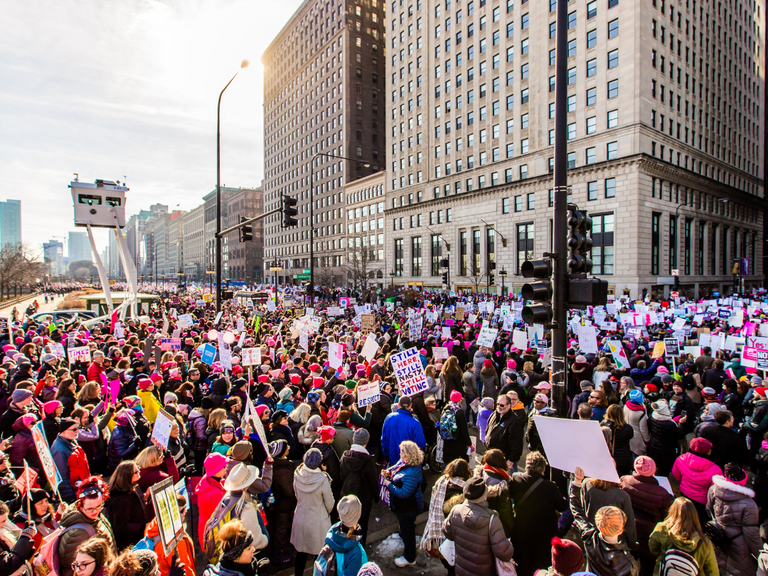GAAS PolSci Conference 2022: Political Norms and Normative Politics? Development, Stagnation, Erosion
Project no.:
22-056
Date:
Thursday, May, 19th– Saturday, 21st, 2022
Venue:
Hybrid
Senatssitzungssaal, Uni-Hauptgebäude, FSU Jena, Fürstengraben 1, 07743 Jena and
Zoom
Partner:
Political Science Department, Friedrich-Schiller-University Jena
Organizers:
Michael Dreyer, Tim Haas, Jörg Hebenstreit, David Sirakov
Target group:
Political scientists, historians, sociologists as well as a larger interested audience
Participation fee:
Participation at the conference is free of any charges, both for presenters and for participants.
Program:
tbd
Registration:
Please register here.
General Information (arrival, accommodation, travel grants, business meeting):
General information can be found here.
Description:
Political norms shape the political system with a mixture of constitutional, statutory, and informal regulations. These formal and informal expectations have shaped the political system of the United States over time, with significant changes since the days of the Founding Fathers, but also more recently. The decades of bipartisanship and Atlanticism, which have shaped the era since the end of World War II are mostly gone. Instead, we face an era of ever-growing polarization in politics and society that affect even the basics of the political system, e.g., the rules of voting and political participation. At the same time normative expectations are currently in flux, as movements like Black Lives Matter and the outcries about a supposed “cancel culture” indicate. These changes are noticeable in all subdivisions of American politics, policy, and polity.
As such, the 2022 Annual Meeting of the Political Science Section of the German Association for American Studies (GAAS) examines the changes and/or erosions of political norms as well as normative politics and reflects on the immediate and potential long-term consequences in the political system of the United States, and how these processes compare to other democracies. The conference builds to some extent on the 2020 meeting in Berlin and its focus on illiberal challenges to democracy.
Program
Thursday, May 19, 2022
2:00-2:30 pm: Introduction
Michael Dreyer / Tim Haas / Jörg Hebenstreit / David Sirakov / Sarah Wagner
Welcome and introduction to the conference
2:30-4:00 pm: Session 1: Democracy and Legitimacy
Chair: Michael Dreyer
Boris Vormann, Christian Lammert (Berlin)
The Promise of Equality: Democracy and Legitimacy of Power in the US
Deanna Wright (Berlin)
Political Norms and Normative Politics? Development, Stagnation, Erosion 2022
Shiveshwar Kundu (Kalyani, India, ONLINE)
Emotional turn in political theory
4:00-4:30 pm: Coffee break
4:30-6:00 pm: Session 2: Changing Norms in Congress
Chair: David Sirakov
Christoph Haas (Freiburg)
Degenerating Norms in Congressional Politics
Christoph Rosa (Berlin)
The Effects of Constituents’ Class on Partisan Co-sponsorship: A Network Analysis of Democratic Factions in Congress
Titas Ganguly (Berlin)
The Show Must Go On?: A normative guide to watch media-ted Congressional proceedings
6:00 pm: City Tour and conference dinner at Zur Rosen
Friday, May 20, 2022
9:30-10:30 am:Business-Meeting
10:30-11:00 am: Session 3: The Presidency and Donald Trump
Chair: Jörg Hebenstreit
Maciej Turek (Krakow, Poland)
Unlimited Presidency? Trump Administration and Congressional Oversight
11:00-11:30 am: Coffee break
11:30-12:30 am: Session 4: The least dangerous branch: the Judiciary
Chair: Christian Lammert
Sebastian Dregger (Eichstädt)
Normative Expectation und Constitutional interpretation – The Inherent Laws of Legal Discourse and Their Conflicting Relation with Political Affiliations
Michael Dreyer (Jena)
Unleashing the Scorpions? The Supreme Court, the Political Thicket, and the Reform Agenda
12:30-2:00 pm: Lunch break
2:00-3:30 pm: Session 5: The norms of voting I: rules and federalism
Chair: Christoph Haas
Patrick Horst (Bonn)
Voting rights legislation in Congress and the 50 states: Are democratic norms eroding?
Kexin Chen (Berlin)
Partisanship and Voting Behaviors in Local Offices
Jared Sonnicksen (Darmstadt)
A Disjointed-Decision Trap? Lessons from US fragmented federalism
3:30-4:30 pm: Session 6: The norms of voting II: class and ethnicity
Chair: Tim Haas
Ella Teevan (Berlin)
Class-Struggle Electoral Campaigns & Working-Class Self-Activity
Gabriel Gomez (Berlin)
New Tendencies of Latino Electoral Behavior: Insights from the 2020 Presidential Election
4:30-5:00 pm: Coffee Break
5:00-6:00 pm: Session 7: Normative media?
Chair: tba
Mike Cowburn / Curd Knüpfer (Berlin)
The Emerging Fault Line of Alternative News: Intra-Party Division in Republican Representatives’ Media Engagement
Joel Fisher (Berlin)
Certifying Doubt: Conservative Pro-Electoral Speech in the Wake of January 6th
7:00 pm: Keynote
Kathy Donohue (Central Michigan University)
Scholarship in an Age of Political Polarization: An Historian’s Perspective
Saturday, May 21, 2022
9:30-11:00 am: Session 8: International relations
Chair: Martin Thunert
Florian Böller (Kaiserslautern)
The End of Nation-building Abroad? Normative Change and the Reorientation of US and Transatlantic Security Policy
Akaki Gotsiridze (Tiblisi, Georgia, ONLINE)
The INSSG and Its Impact on Normative International Agenda
11:00-11:30 am: Coffee break
11:30-1:00 am/pm: Session 9: Democracy and Society
Chair: Jared Sonnicksen
Philipp Adorf (Bonn)
White status anxieties - How changing demographics elicit authoritarian preferences and a rejection of democratic norms among white conservatives
Ekhvaia Luka (Tiblisi, Georgia, ONLINE)
The Erosion of the Political Norms in the US: Decay of Democracy, Psychological Bias or Something still Undeciphered?
Natalie Rauscher/Martin Thunert (Heidelberg)
Changing Norms of Giving? Motivations and Perceptions of 21st Century ‘Givers‘
1:00 pm: Lunch snack and departures








